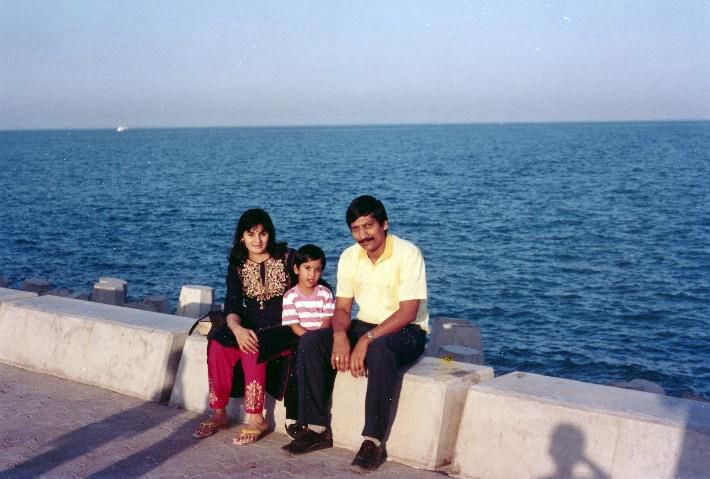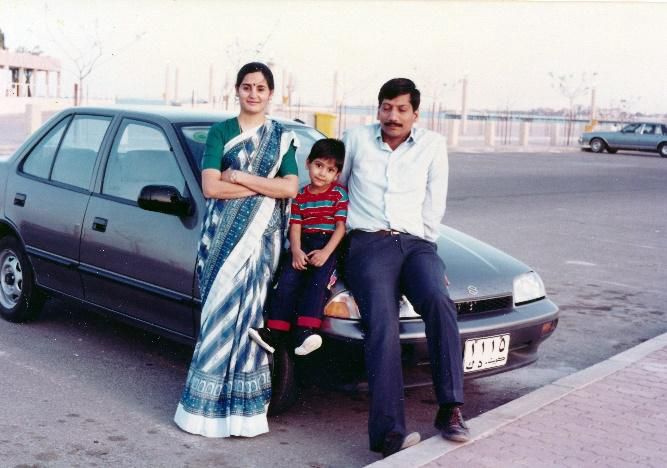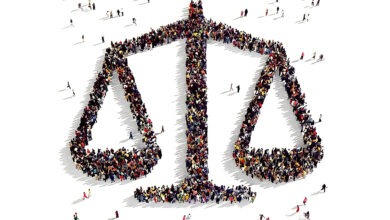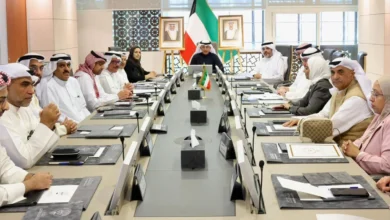An expat’s experience of the 1990 Iraqi invasion

By Sanjay Jangle
Expat in Kuwait since 1988 with a deep love for the country
The following are my personal experiences during the initial days and months of the invasion in Kuwait, intertwined with other researched information.
On 1 August, 1990 we finished the regular weekly office meeting in the afternoon, and as usual I browsed the news headlines on the Reuters terminal in the office. The first headline was on the failure of the meeting in Jeddah of Arab leaders gathered to diffuse the growing crisis between Kuwait and Iraq. A second headline indicated that the American warship in the Gulf was ‘on alert’.
The next day, on the morning of August 2, at about 5:30 am, I was woken up by the roaring sound similar to planes flying overhead, but then dismissed them as possible maneuvers being conducted by the Kuwaiti Air Force. Later I came to know that the roar was of two Scud missiles that flew over the building targeting the telecommunications tower in Fahaheel in South Kuwait. While getting ready for office, I switched on the BBC news on radio and heard the sinister news that Iraq had invaded Kuwait.
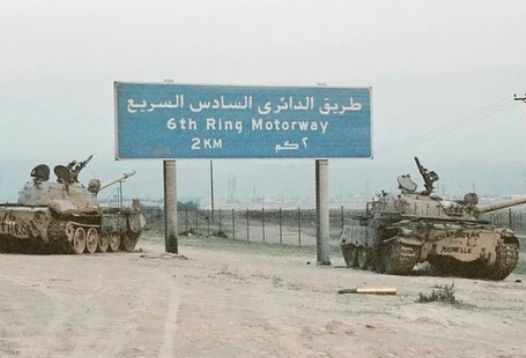
In India we had known of two wars, one with China, and one with Pakistan, which were fought on the border, and the feeling in my mind was that this war would be confined to the borders between Kuwait and Iraq. It was naive thinking. At 2am on August 2, Iraq initiated an invasion of Kuwait using four elite Iraqi Republican Guard divisions. After several hours of heavy fighting, Republican Guard tanks entered Kuwait City.
Not knowing any of this, I headed to the office along with two other colleagues in my car. On the 5th Ring Road the traffic was being diverted by military personnel to bypass the Bayan Palace. We could not figure out whether the army personnel were Kuwaiti or Iraqi, but as we were approaching Subhan, we witnessed battle tanks lined up on Kuwait Airport runway. Now this scene was scary. Anyhow, we reached our office and found that it was closed. The Iraqi watchman informed us that the office was closed and to go back home.
As there was no office from 2nd August onwards, after daily chores, people had nothing to do but to keep talking on land-line telephones. There were no mobile phones at that time. Everyday there used to be some canard spreading on the phones, and there was no method to fact-check. One day my friend told, that he heard that the Salmiya 4th Ring Road fire station had been bombed. We went there in the evening and found it was intact. Next day someone said, the Sultan Centre, a high end supermarket store was bombed, and again we drove there in the evening to find it intact.
Couple of days after 2nd August, my company manager called me and another senior colleague to our office to collect passports of employees in our area and distribute them to the employees. My colleague drove me to our office in Subhan. I vividly remember the ghastly scene of some dead bodies covered in white cloth lying under the Khaitan overbridge. We saw Iraqi soldiers around and did not have the courage to look around through the window, and instead looked straight ahead.
For the 17 days that we lived in Kuwait after the invasion of August, almost daily we went to Kuwait Flour Mill in Rumaithiya for Khubus, to Salmiya Co-operative store for vegetables and groceries. We stood in line at Salmiya Co-operative for hours for gas cylinders. There once I observed one slender Iraqi soldier overlooking the crowd, in torn canvas shoes and I pitied about his condition that he was suffering for which the country’s leader was responsible.
With each passing day, our anxiety grew. How long would this continue? How and when would we be able to leave Kuwait? We knew the Saudi border to the south was sealed, and the only way out was through the northern Kuwait-Iraq border. We lived in constant fear, uncertain of what fate had in store for us. Listening to BBC news about Iraq and the world coalition amassing their military forces was even more frightening, as we were right in the midst of it.
After about two weeks, a few of my friends and I decided to leave Kuwait. Accordingly, on 19 August, in the early morning, fifteen of us started out in three taxis to Baghdad. Everybody was asked to carry only one small briefcase, so that we would not have to waste time at any customs border. I carried my certificates, a VCR, a few clothes, a camera, and a plastic bag with 7-8 liters of water along with some food stuff with me.
Kuwait to Baghdad distance is about 750 km. At Abdally checkpoint, there was heavy traffic with lots of Iraqi military vehicles flowing into Kuwait, but there was no checkpost on the Kuwait-Iraq border, as per Saddam Kuwait was now part of Iraq.
Until we were about 280 km from Baghdad there was no checking, but once we began approaching the Iraqi capital our taxis were checked six times.
We eventually reached Baghdad at around 4:30pm the same day and went straight to the Air India office and bought an Amman to Bombay air ticket. We faced some difficulties in exchanging Kuwaiti Dinars and in hiring a bus to take us to Jordan. On 20 August, we started our bus journey to Amman. On the way, while still in Iraq, the bus was halted by Iraqi soldiers for about four hours. We were afraid that they would send us back to Baghdad, however it was later revealed that they stopped us to reduce the rush on the border between Iraq and Jordan.
Next day, at about 10:30am we reached the Iraq-Jordan border. It took us about five hours to cross the border, traverse through the no man’s land and then cross the Jordan check-post. We were so relieved at this point, with the feeling of having come out of the war zone. We reached the Indian Embassy in Amman at about 7:30pm on 21 August and finally took off by Air India on 22 night to arrive in Bombay on the morning of 23 August.





